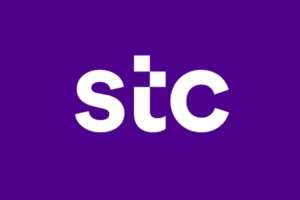The Etisalat Group’s Senior Vice President for Corporate Communications, Ahmed bin Ali, today presented a vision for the future of education in the Middle East region. Providing several examples of how technology is empowering tens of thousands of students located in the UAE and Etisalat’s other 17 international markets, Ahmed bin Ali alerted the delegates of the MENA ICT Forum that the education is now intrinsically linked to technology.
Ahmed bin Ali, Group Senior Vice President Corporate Communications at Etisalat said: “The youth of today are using electronic media more than any other source of knowledge. The fact is, even if schools do not provide electronic teaching resources students will still proactively use the Internet, social media and electronic books to learn. Traditional learning techniques and schools without an E-Education framework are on the verge of being consigned to the very history books that they try to teach from. This makes fiber optic networks and 4G mobile broadband key technologies to be promoted by regional governments in the coming decade.”
Ahmed addressed hundreds of senior government officials and senior representatives of public and private sector companies from across the Middle East in a panel which he shared with other leading proponents of e-learning. This took place at the third annual MENA ICT Conference which this year took place in Damascus, Syria and which was organized by The Arab ICT Organization (IJMA3). This year MENA ICT was held in conjunction with in cooperation with the World IT and Services Alliance (WITSA), the Syrian Computer Society (SCS), and United Nations ESCWA organization.
The Etisalat Group is working with education providers in the UAE to provide access to new learning tools. In particular, the UAE’s National Research and Education Network (NREN) which is also known as ‘Ankobut’ provides dedicated Internet access for higher education providers and a connection to international research networks to enable a greater level of participation from the UAE in global research initiatives. Etisalat is also making efforts to proliferate mobile learning tools through workshops with leading establishments and partnerships with innovative e-education companies.
Etisalat’s subsidiaries in Nigeria, Sri Lanka and Pakistan offer clear examples of the Etisalat Group’s commitment to education. In West Africa, Etisalat has adopted several schools and is helping to enhance the learning infrastructure there. In Asia, Etisalat subsidiaries are creating Etisalat Knowledge Centres and providing access to educational materials at the Grassroots level. It is also working with leading multinationals to create opportunities for research and development through a Centre for Excellence for Internet Technologies.
These services are only possible thanks to Etisalat’s investment in next generation fixed-line and wireless broadband infrastructure including fiber optic networks and LTE. Etisalat is deploying some of the largest fibre networks in the Middle East, Africa and Asia and has secured 3G licenses across the region. These technologies, which are supported by numerous intercontinental cable connections, ensure that education suppliers have access to reliable and high-speed broadband services and empowers the future of e-learning across the region.
Etisalat is one of the world’s leading telecommunications groups with operations in 18 countries, servicing 135 million people out of a total population in excess of 2.3 billion. It employs over 50,000 staff and estimates that a total of nearly 2 million people enjoy regular employment as a result of its various businesses.
June 9, 2025











